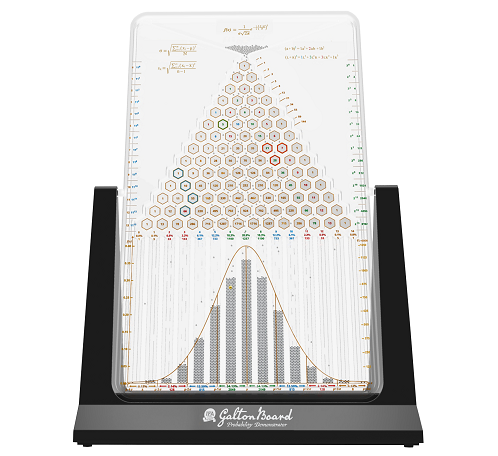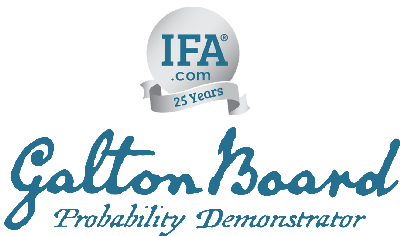In terms of journalists covering the spread of computers into the opaque world of trading by hedge funds, few have amassed as many awards and critical acclaim as the Wall Street Journal's Gregory Zuckerman. Perhaps one of his most highly praised projects was an in-depth series detailing how high-frequency traders using sophisticated algorithms were setting about to dominate global financial markets, rising from so-called dark pools to control millions of dollars worth of market activities at a time.
"Algorithmic trading has been around for a long time but was tiny," he wrote along with co-author Bradley Hope. These types of 'quants,' as they're known, once only dreamed of becoming kings on Wall Street, the article notes. It adds: "That day has arrived." Citing independent research from the Tabb Group, such quantitative hedge funds were estimated to have grown to represent 27% of all U.S. stock trades by investors. That was as of 2017 and up from 14% nearly four years earlier. 1
Indeed, a popular topic of financial reports these days seems to be the topic of "Man vs. Machine." In too many of these accounts, humans are portrayed as succumbing to robotic-like swells of trading, especially those trying to pitch their sails in the murky trade waters inhabited by hedge fund managers.

Given such an embrace by active managers of new technologies to get an upper hand by speeding up trading, sometimes in nanoseconds, it's not surprising to hear concern by long-term minded investors that financial markets are nothing more than a giant casino where the odds are stacked against them.
While this perception definitely holds true for people who are speculating by trying to time markets – a ploy we refer to as "time picking" – a wealth of academic research shows it simply doesn't apply to investors who buy, hold and rebalance a portfolio of globally diversified index funds that's appropriate for their level of risk capacity.
In its research report "Quantitative Analysis of Investor Behavior," Dalbar Inc. found that a typical U.S. stock mutual funds investor through 2019 had underperformed by nearly five percentage points a year (over the past 30 years) by mistiming moves in and out of markets.
While the S&P 500 Index had returned an average 9.96% over that period, the independent investment research firm estimated an average stock fund investor actually realized just 5.04% a year.2
Like the casino owners and insurance companies, investors who own a globally diversified and passively managed portfolio of index funds are playing a game where the odds are stacked in their favor.
To understand this, let's first consider how casinos make money. Essentially, they repeatedly take one side of a bet that is tilted in their favor. Whether it's spinning a roulette wheel, rolling dice or dealing cards, the "house" always has the statistical edge. Of course, there are exceptions (such as card counters). But as industry pros have related in the past, casinos count on making more money from people who think they can successfully count cards than they lose from such dealings.
Regarding those foolish enough to think they can consistently get away with cheating the house, they might want to consider that a key to profitability at a casino is its ability to play the same game thousands of times over hundreds of days a year. According to the law of large numbers, this repeated play makes it a virtual certainty that the casino will collect on the house edge. While the casinos love their high rollers (i.e., whales), they know how important it is to limit the size of any single bet.
With insurance companies, the underlying concept is exactly the same. Simply put, insurers are making bets spread among thousands of policyholders over a long period of time. One difference of significance, however, is that the bets are based on serious real-life events, such as death and property destruction. Still, insurance company actuaries and underwriters set individual premiums so that the company has a positive expected outcome.
Naturally, there will be many policyholders on which the company will lose money. On the flip side, though, insurance providers can protect themselves from injecting too much risk into a single policy by utilizing things like coverage limits and reinsurance. In some respects, such calculations used to determine insurance prices can be viewed as not all that removed from how casino managers figure into their operations the odds and payoffs of various games of chance.
In fact, it's not uncommon for probability theorists to notice a general connection between how gambling operations stay profitable and insurance carriers minimize their own unique sets of business risks.
One important difference that comes out of such a perspective is that while casinos simply provide entertainment, insurance firms perform a valuable societal function by spreading risks associated with life-threatening and potentially life-altering events. Although the odds favor most policyholders winding up forking over more to their insurance companies than they'll get through actual policy payouts, those insured are still getting some peace of mind – a sense of protection in case something materially goes wrong. This might include being shielded from bankruptcy if a catastrophic event takes place.
Most of us are at least to some degree risk averse. From such a perspective, buying insurance is sometimes described by economists as helping people to "maximize their utility" as individual consumers, even if they can end up paying more for it over a lifetime than realize in direct monetary payouts.
By contrast, stock prices move in a random walk, so to speak. At the same time, these investments still have a positive expected return over time. After all, if they had a zero or negative expected return, no rational person would want to own them. Stock prices would adjust downward until the expected returns became commensurate with the level of risk associated with such shares.
To be an optimal course of action for investors who hold a diversified portfolio of index funds, all we need to know is that every security is continuously priced by the market so that buyers receive a positive expected return in accordance with the risk they bear. When an indexer holds thousands of stocks over thousands of days, the law of large numbers should work in his or her favor – as it does for the casino owner and the insurance company.
By choosing a good provider of passively managed funds, index investors can tilt the odds even more in their favor. Dimensional Fund Advisors (DFA) and Vanguard, for example, generate extra revenue for their shareholders at the expense of active investors by engaging in securities lending to short sellers. Another method of enhancing shareholder returns is to utilize a patient and opportunistic trading strategy where the funds benefit from being a provider of liquidity rather than a seeker of liquidity. Again, this is an example of passive investors benefitting at the expense of active investors.
As an index funds investor, you own the publicly traded casinos and insurance companies. In this way, you're already a beneficiary of these firms' positive expected returns, (assuming you're not a socially responsible funds investor who avoids gambling stocks). Ironically, you also own the actively managed mutual fund companies and brokerage houses that profit from active investors.
Investing as an indexer is one of the few activities in life where you get the benefit of house odds, so take advantage as early and often as possible.
Footnotes:
1.) The Wall Street Journal, "The Quants Run Wall Street Now," Gregory Zuckerman and Bradley Hope, May 21, 2017.
2.) Dalbar Inc., "Quantitative Analysis of Investor Behavior," March 2020.
This is not to be construed as an offer, solicitation, recommendation, or endorsement of any particular security, product or service. There is no guarantee investment strategies will be successful. Investing involves risks, including possible loss of principal. Performance may contain both live and back-tested data. Data is provided for illustrative purposes only, it does not represent actual performance of any client portfolio or account and it should not be interpreted as an indication of such performance. IFA Index Portfolios are recommended based on time horizon and risk tolerance. Take the IFA Risk Capacity Survey (www.ifa.com/survey) to determine which portfolio captures the right mix of stock and bond funds best suited to you. For more information about Index Fund Advisors, Inc, please review our brochure at https://www.adviserinfo.sec.gov/ or visit www.ifa.com.














